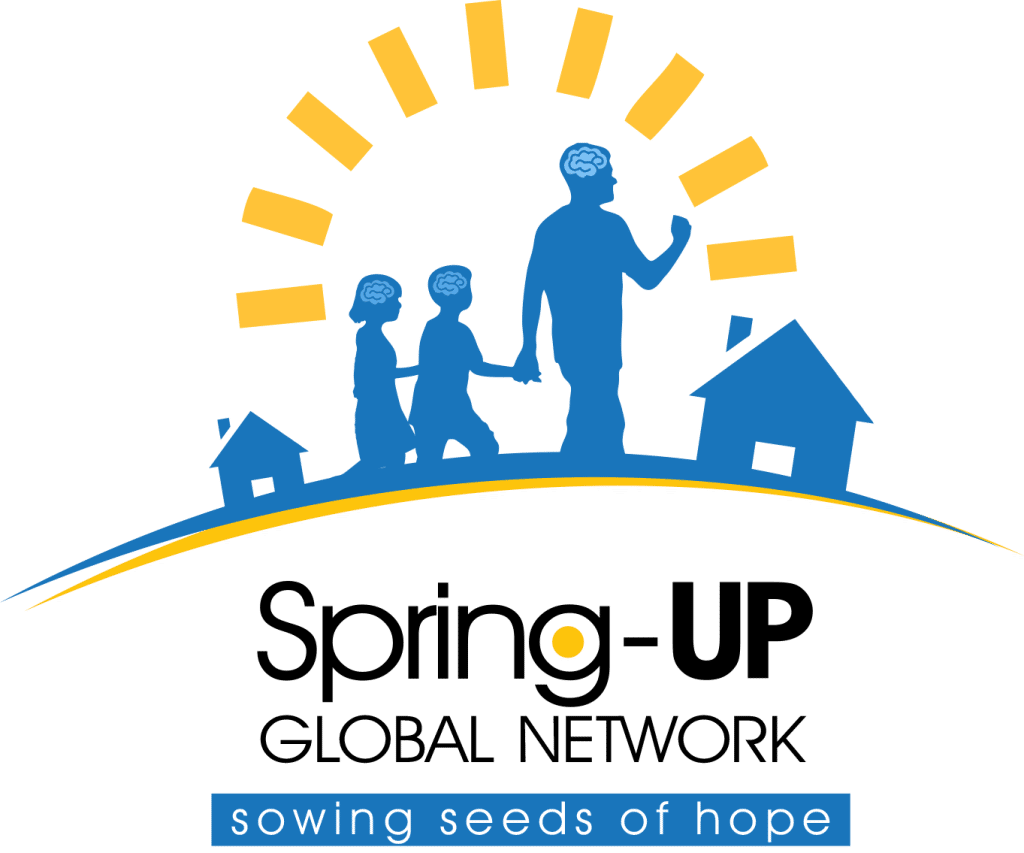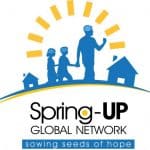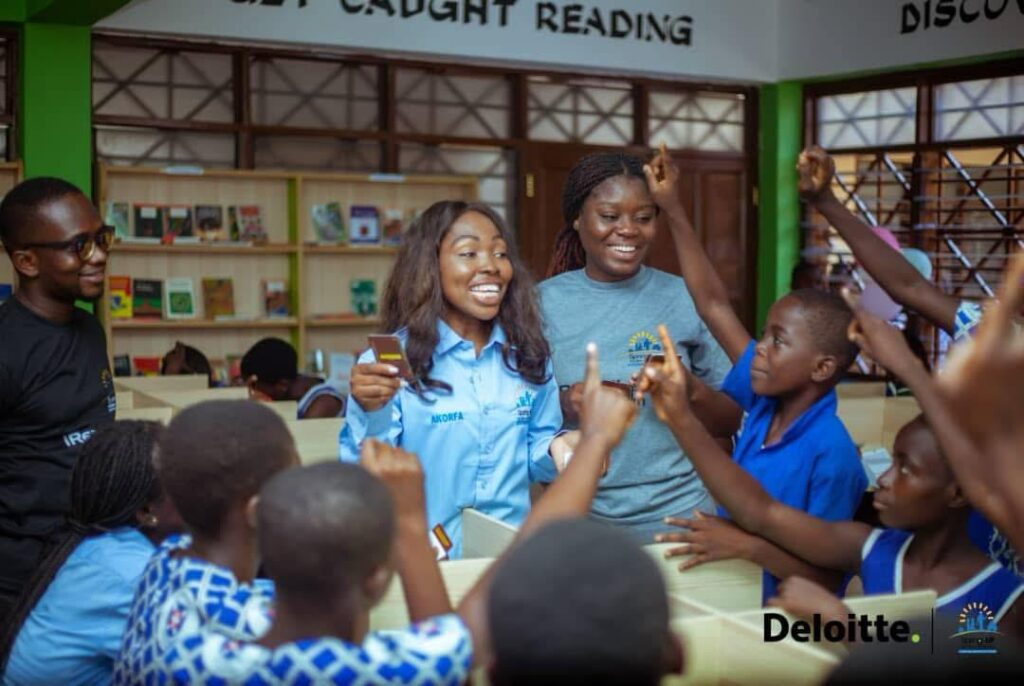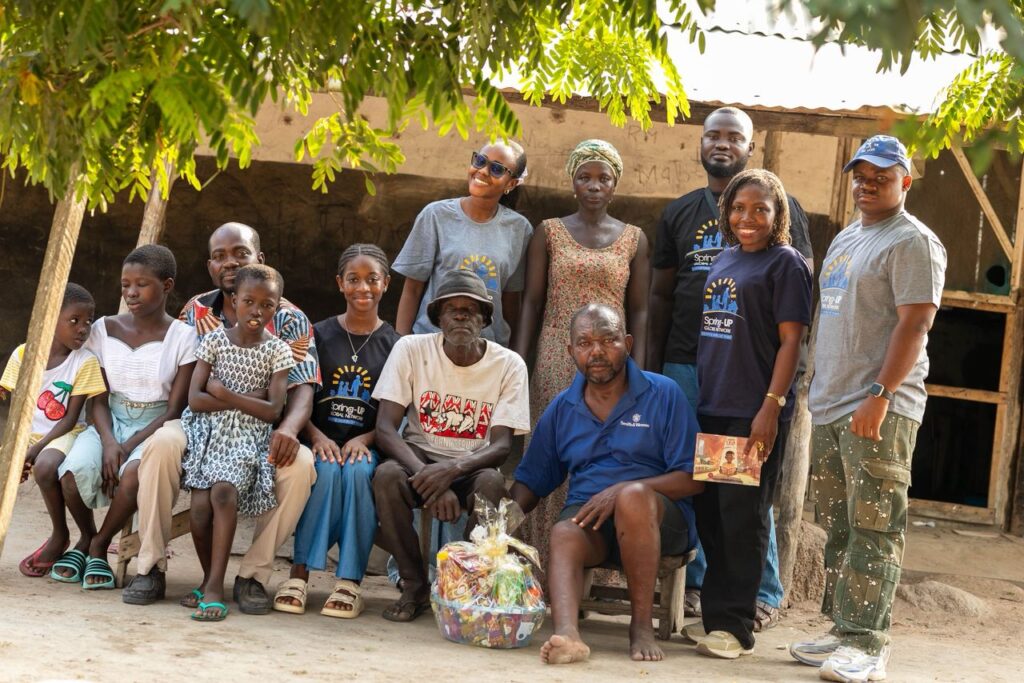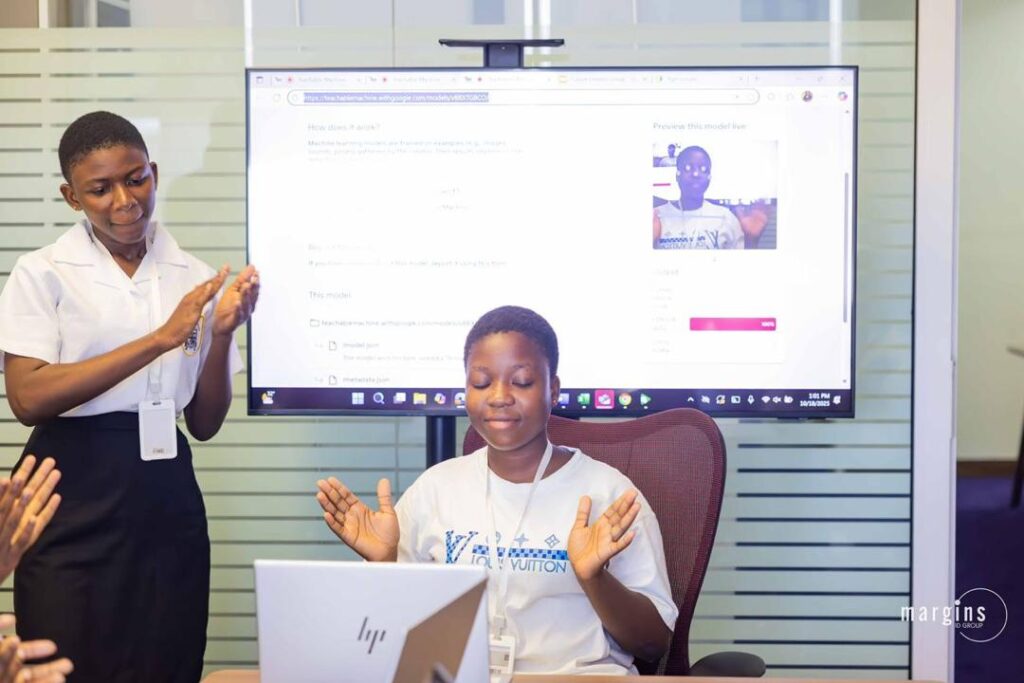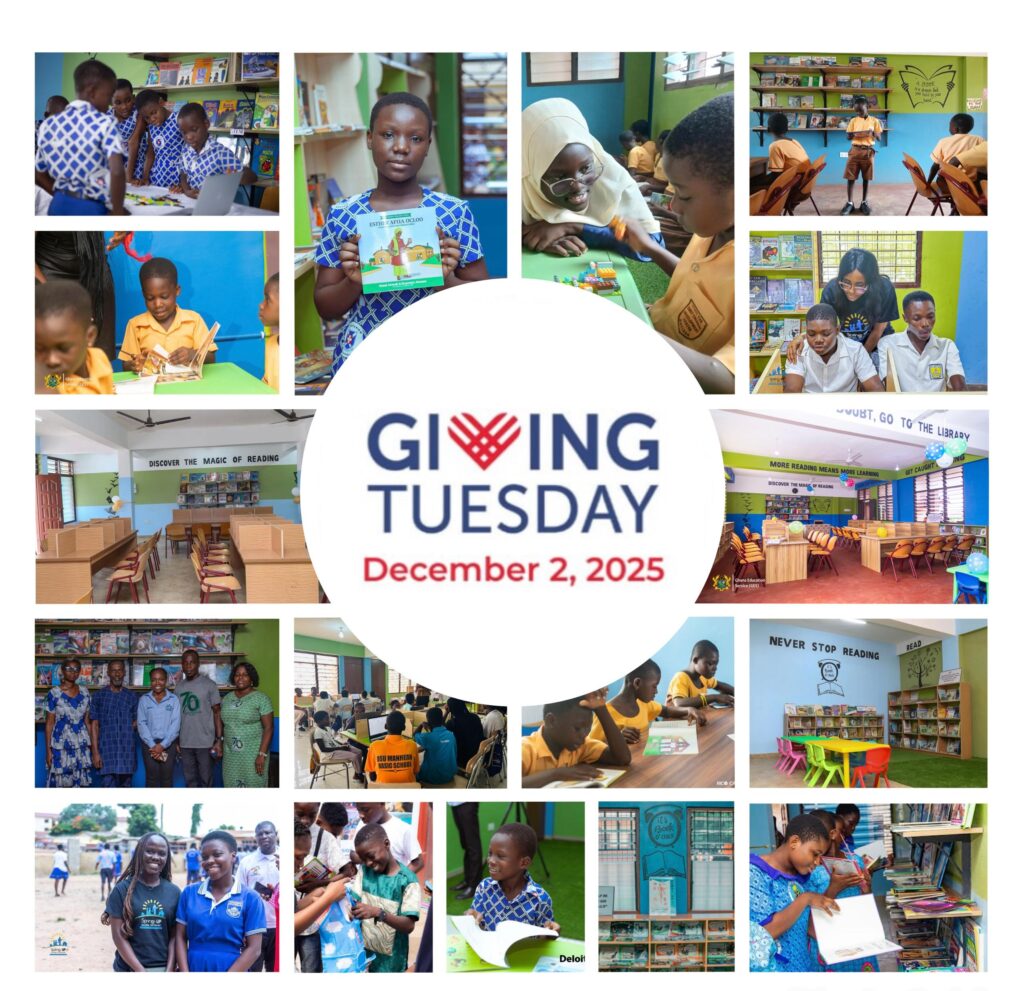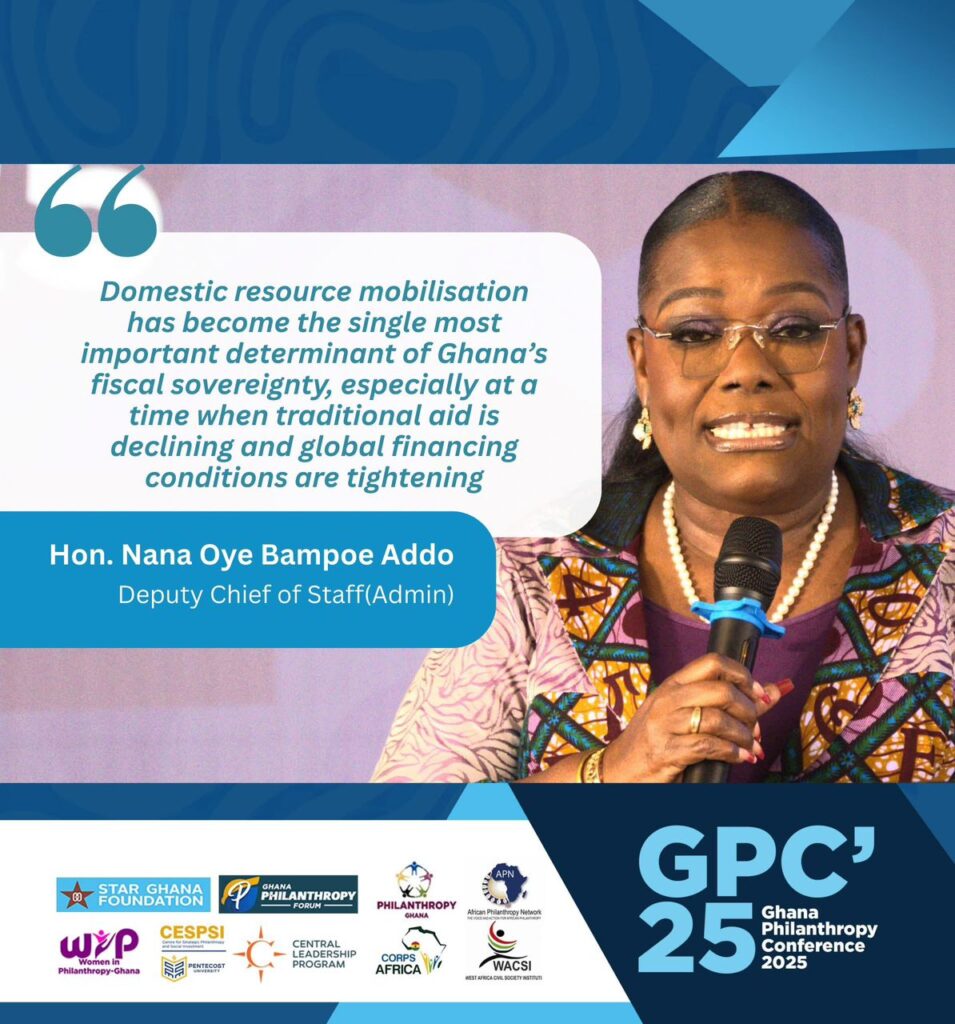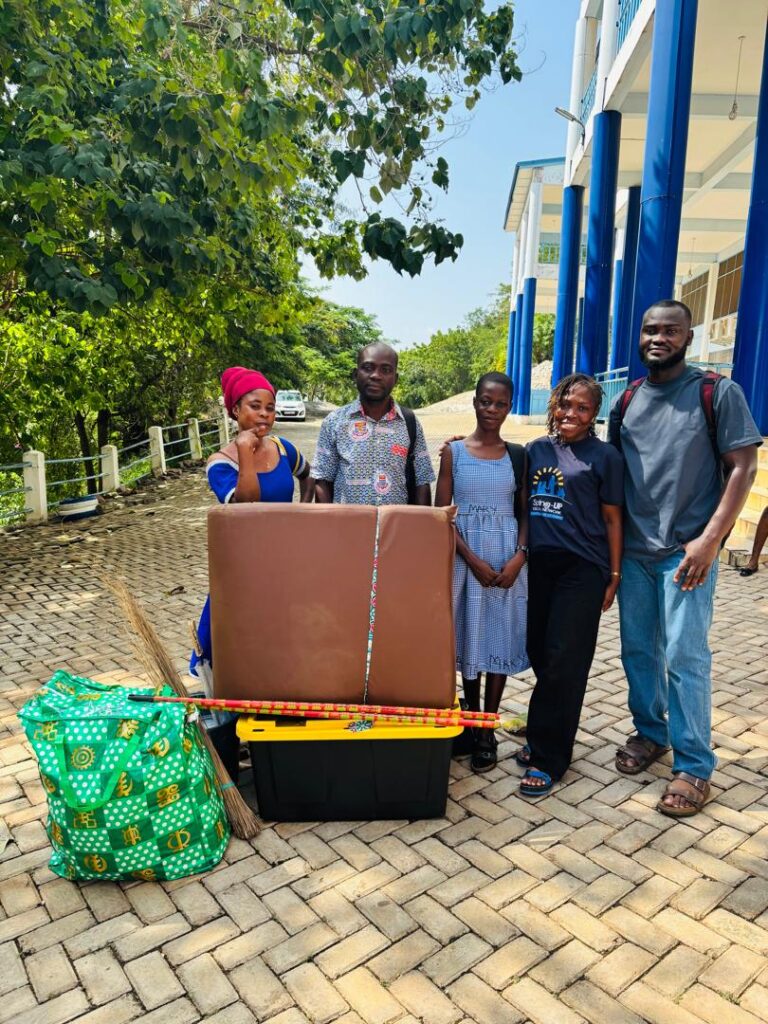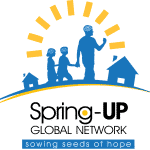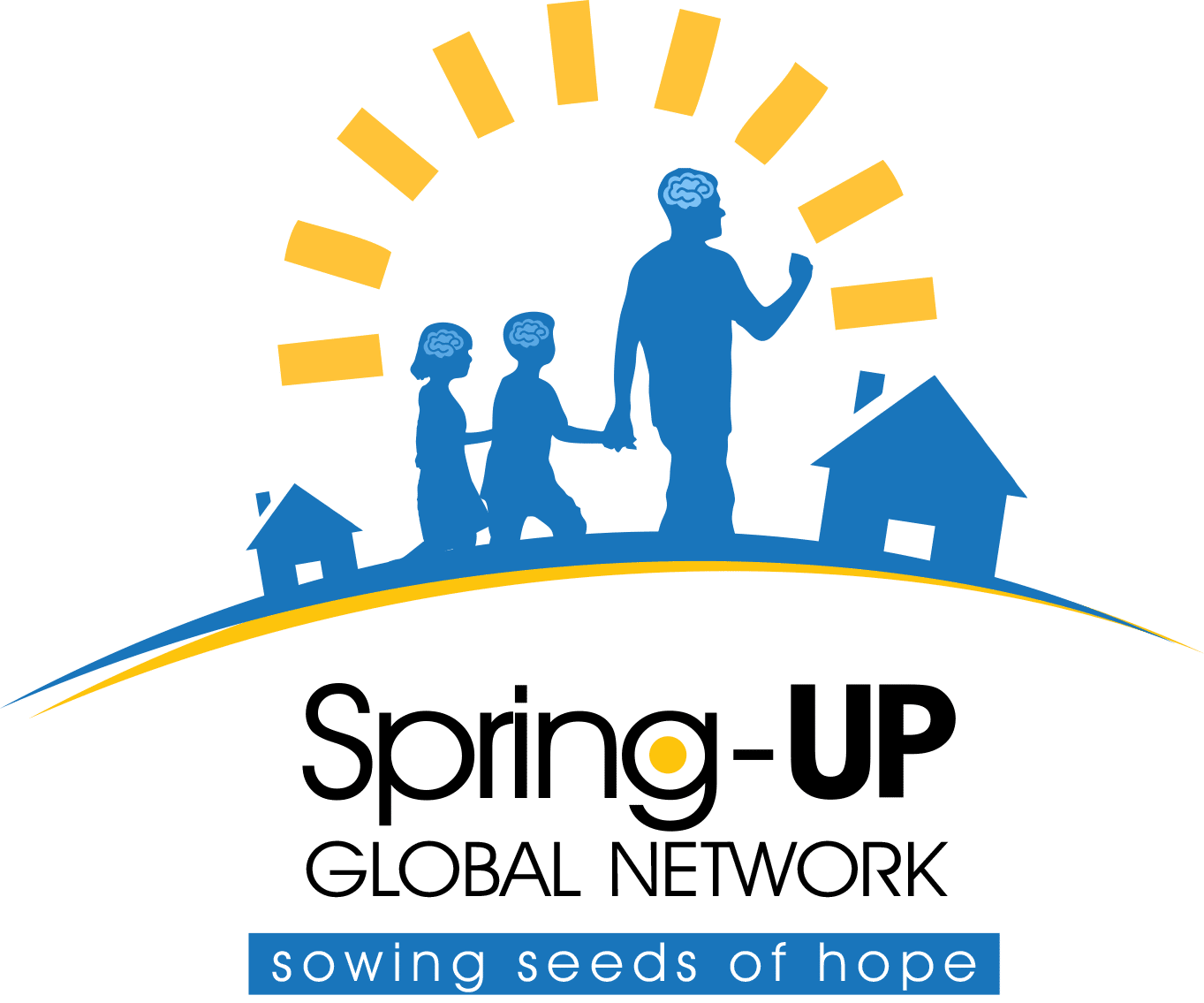A Literacy Intervention Aligned with UN SDG 4: Quality Education
In Ghana, where foundational literacy remains a major barrier to equitable education, Spring-UP Global Network (SUGN) is leading a transformative movement through its flagship initiative, the iRead iLead Campaign. Anchored in the principles of the United Nations Sustainable Development Goal 4, which aims to “ensure inclusive and equitable quality education and promote lifelong learning opportunities for all,” the campaign is strategically designed to strengthen school systems and empower communities, delivering sustainable educational outcomes.
Why Literacy Matters: Closing the Foundational Gap
According to the UNICEF MICS-EAGLE report, 52% of Ghanaian children lacking foundational reading skills come from the country’s poorest regions. These children are unable to read and understand a simple sentence by age 10, a critical milestone for lifelong learning, employability, and civic participation. Without timely intervention, this learning crisis risks reinforcing cycles of poverty and inequality.
Globally, the challenge is even more alarming. UNESCO (2023) reports that 617 million children and adolescents are unable to read or perform basic math, despite attending school. In Ghana, fewer than 30% of public basic schools have functioning libraries, and only one in ten rural schools has access to stocked reading spaces (Ghana Library Authority, 2023). These gaps in access to learning resources severely limit children’s ability to develop foundational literacy skills.
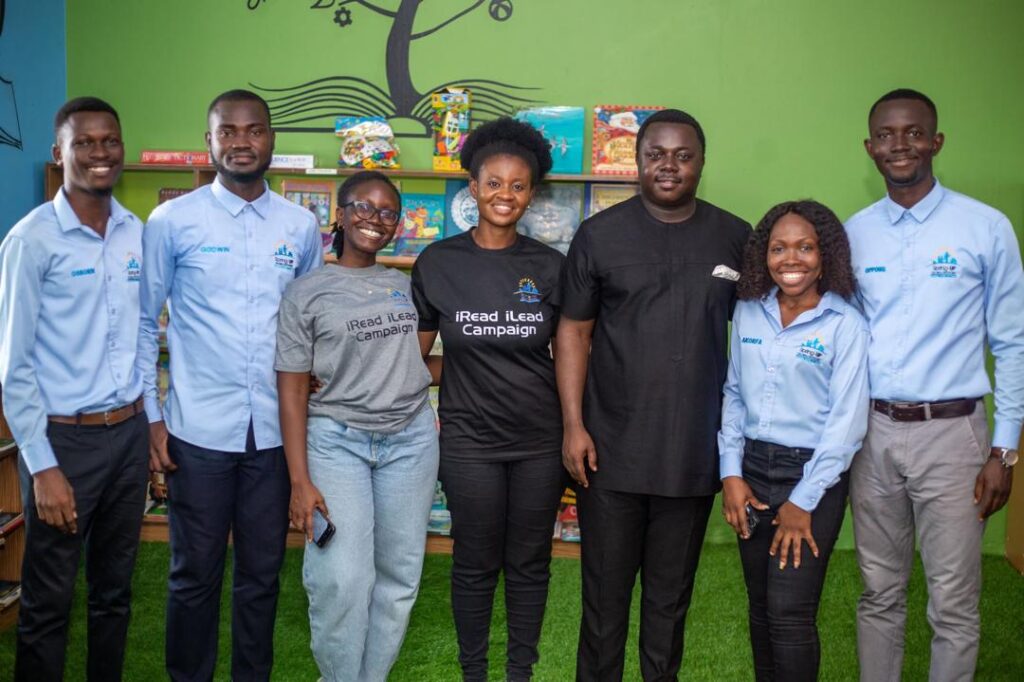
Spring-UP volunteers with the former Deputy Minister for Education at the launch of the Achiase Cluster of Schools library.
Spring-UP Global Network’s iRead iLead Campaign is designed to address this challenge head-on. By establishing inclusive, well-resourced libraries and integrating literacy with STEM education, the campaign is building the capacity of schools and communities while delivering sustainable impact aligned with UN SDG 4: Quality Education.
How We’re Building Capacity and Driving Impact
1. Improving Access to Libraries
In just three years, Spring-UP has established 10 libraries across six regions, reaching over 24,000 learners and stocking more than 10,000 books, with a strong emphasis on African-authored titles. These libraries serve as inclusive literacy hubs that foster reading culture, creativity, and community engagement.
Each library is professionally designed and established to include:
- Early Childhood Education (ECE) corners
- Interactive reading floors
- STEM zones for inquiry-based learning
- Talking walls and murals to stimulate curiosity
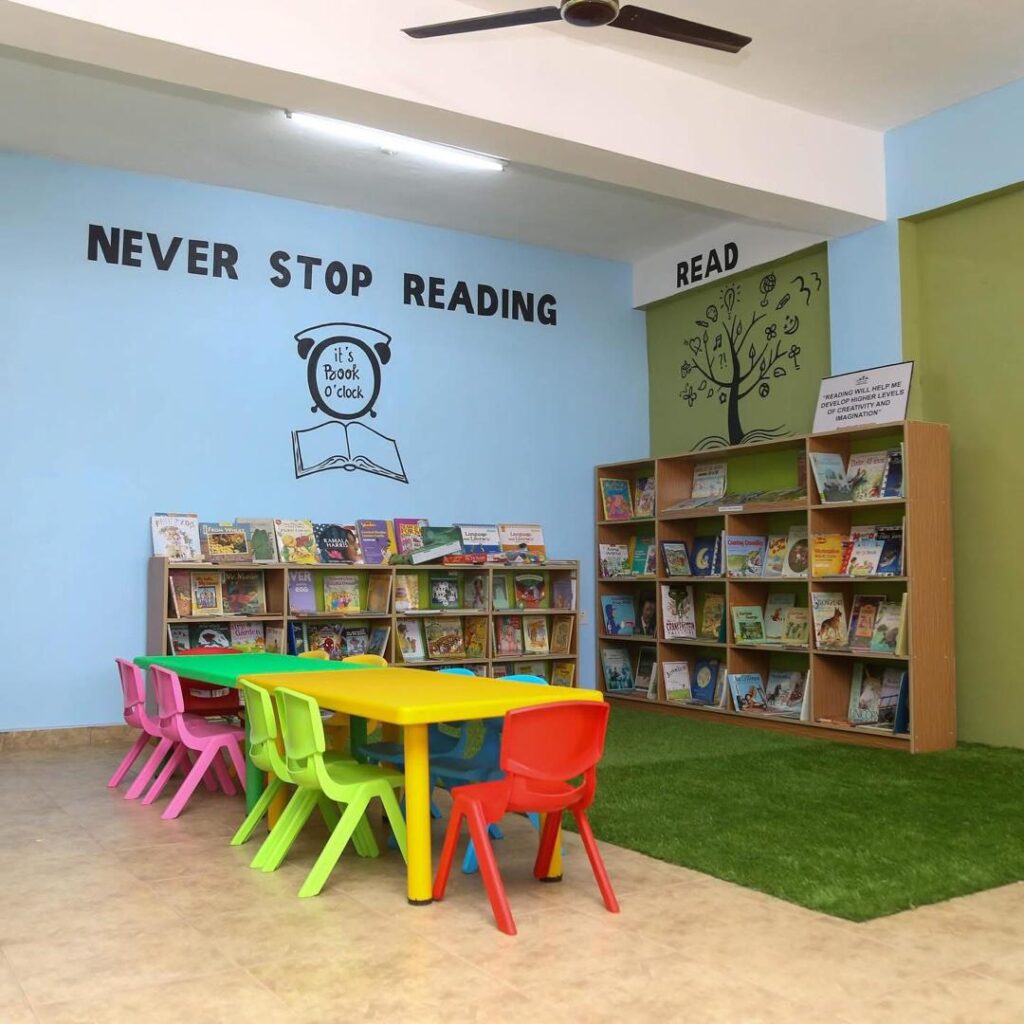
Our ECE reading corner
2. Promoting Foundational Literacy and Creative Expression
Spring-UP’s libraries host guided reading sessions and plan to expand into creative writing workshops and practical STEM activities. The upcoming LitSTEM Leaders Programme introduces a cohort-based model that integrates literature and STEM education. It is designed to:
- Nurture literary and creative writing skills
- Encourage learners to write short stories, articles, and reflections
- Demystify STEM subjects through hands-on, project-based learning
3. Strengthening Local Economies and Community Ownership
Each library is constructed or refurbished by local artisans. Including carpenters, mural artists, electricians, and bookshop vendors, under the coordination of Spring-UP’s project team. Following the launch, School Improvement Support Officers (SISOs) and Headteachers work collaboratively to identify and appoint librarians and facilitators, ensuring community ownership, local capacity building, and long-term sustainability.
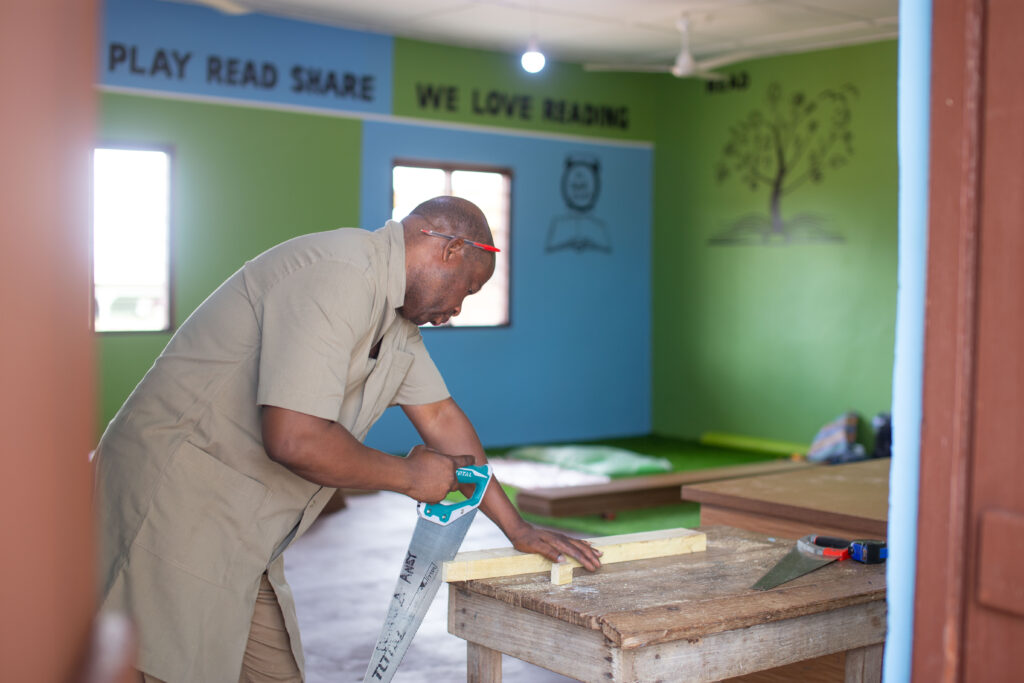
Carpenter building furniture for the Achiase Cluster of Schools library
4. Integrating STEM Education and Digital Inclusion
To equip learners with the skills needed for success in the 21st century, Spring-UP Global Network is raising funds and exploring partnerships to introduce computers and digital tools into its library spaces. This initiative aligns with Ghana’s Education Strategic Plan (ESP 2018–2030), which prioritizes increased science enrolment and digital readiness at the pre-tertiary level.
Despite limited resources, Spring-UP currently runs the Mentor Me Programme in partner schools where its libraries are located; a dynamic outreach initiative connecting pre-tertiary students with industry leaders, professionals, and tertiary students. Through interactive sessions, the programme provides personalized mentorship, career awareness, and guidance, empowering students to make informed decisions about their future, with a strong emphasis on careers in STEM (Science, Technology, Engineering, and Mathematics) and the Creative Arts.
From Achiase to Hohoe: Our Library Footprint
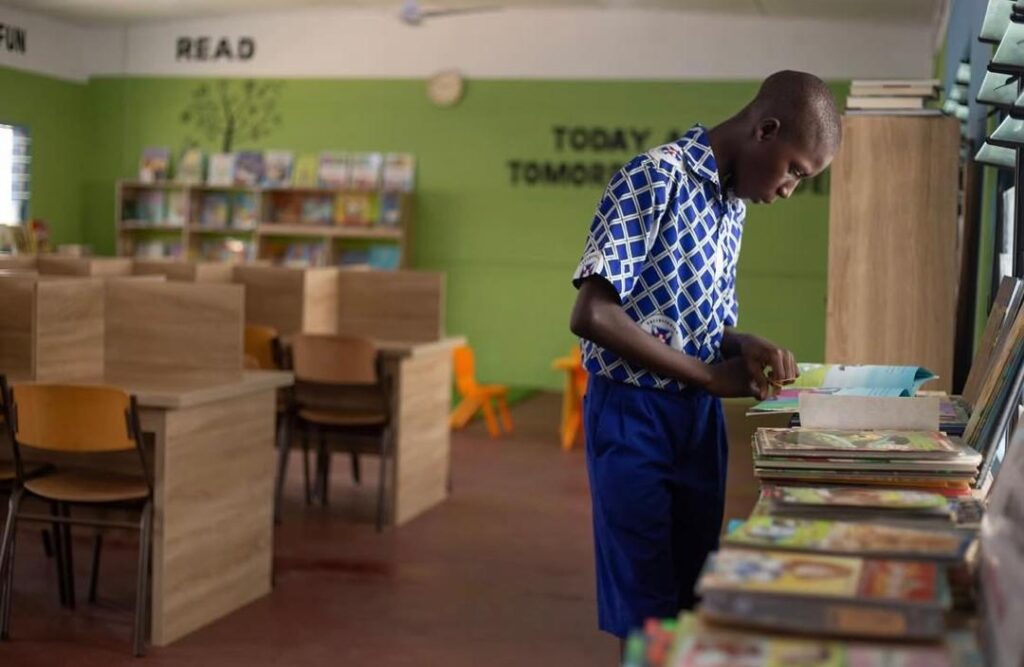
A learner exploring the Adweso Cluster of Schools library
Spring-UP’s libraries span both urban and rural communities, including:
- Yevi D/A Basic School (Volta Region) – 300+ learners
- Agbekotsekpo D/A Basic School (Greater Accra) – 300+ learners
- Osu Cluster (Greater Accra) – 3,829+ learners, 11 schools
- Kwashieman Cluster (Greater Accra) – 3,902+ learners, 5 schools
- State Experimental M/A (Ashanti Region) – 2,945+ learners
- Konongo Mines M/A (Ashanti Region) – 2,046+ learners, 4 schools
- Adweso Cluster (Eastern Region) – 2,053+ learners, 4 schools
- Achiase Cluster (Central Region) – 2,017+ learners, 5 schools
- Hohoe East Cluster (Volta Region) – 3,133+ learners, 7 schools
- Aburi Cluster (Eastern Region) – 3,394+ learners, 4 schools
Mobilizing Resources for Scalable Impact
Between 2020 and early 2022, Spring-UP Global Network established two libraries with support from individual donors mobilised through social media and volunteer contributions, directly benefiting over 700 learners.
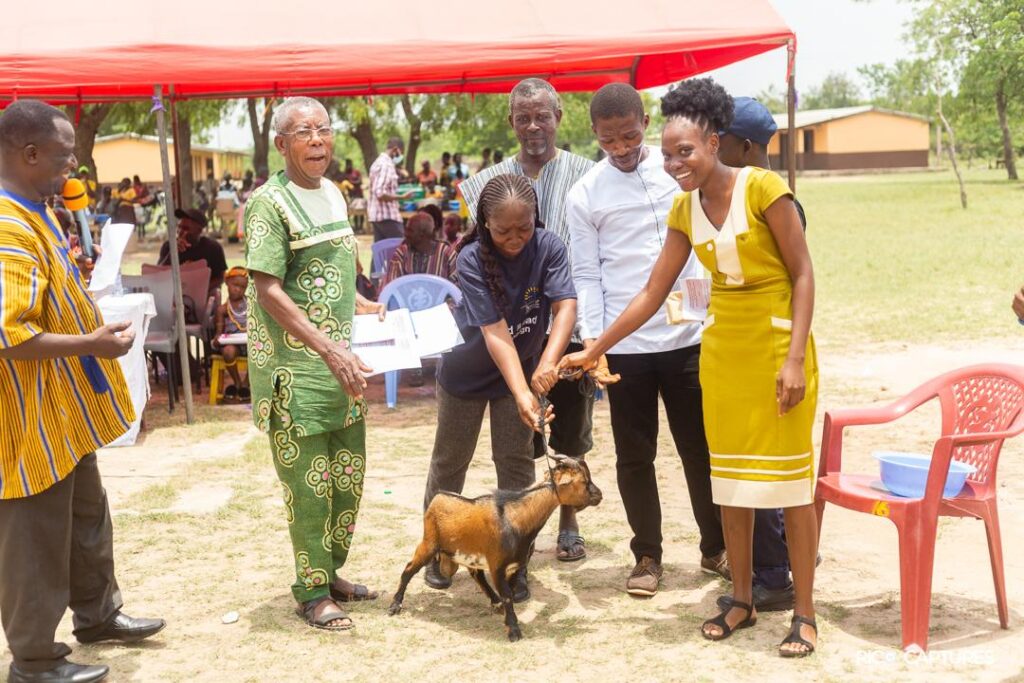
The Parent Teacher Association presenting a goat to Spring-UP as a token of appreciation during the commissioning of the Agbekotsekpo D/A Basic School library
Strategic Partnerships: The Deloitte WorldClass Initiative
In September 2022, Deloitte partnered with Spring-UP Global Network under its WorldClass Initiative, contributing $55,000 to establish eight additional libraries across five regions within just 20 months. This partnership underscores the transformative potential of youth-led innovation when backed by strategic investment and collaboration. It also highlights the cost-efficiency and effectiveness of youth-led models in delivering SDG-aligned outcomes.
Spring-UP celebrates Deloitte Ghana for its confidence in youth-led interventions and for making an impact that matters through this strategic partnership, reaching more communities, schools, educators, and children in a short time frame.
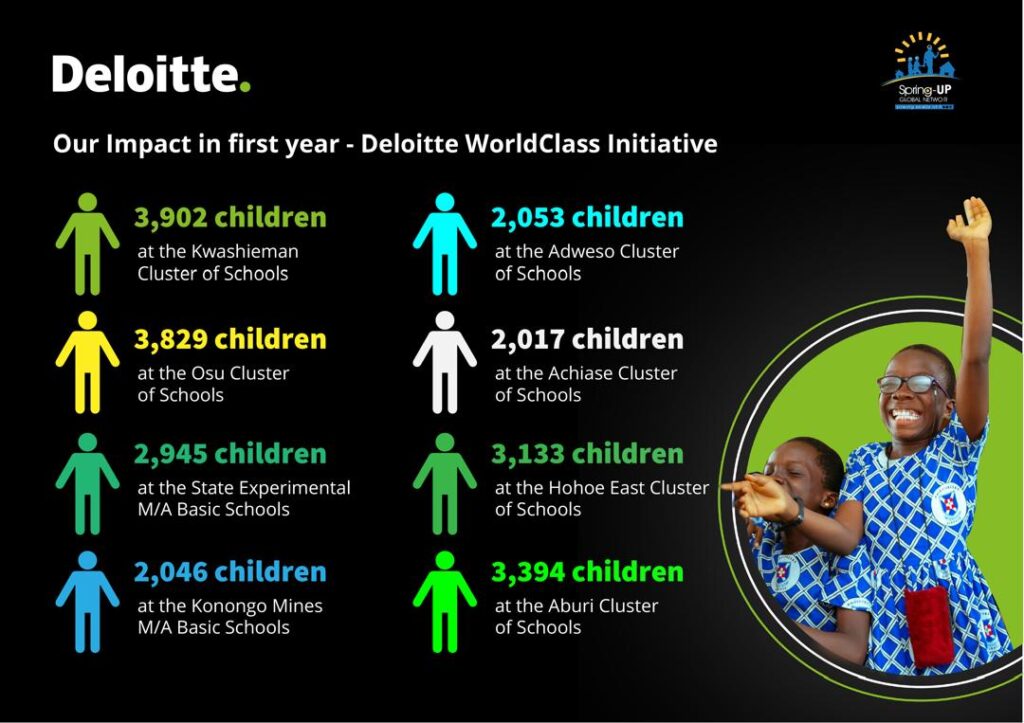
Conclusion: A Scalable Model for Educational Transformation
Beyond building libraries, Spring-UP’s iRead iLead Campaign is cultivating capacity, confidence, and community resilience. It offers a scalable, replicable model for achieving SDG 4 in low-resource settings and presents a compelling case for investment in literacy infrastructure.
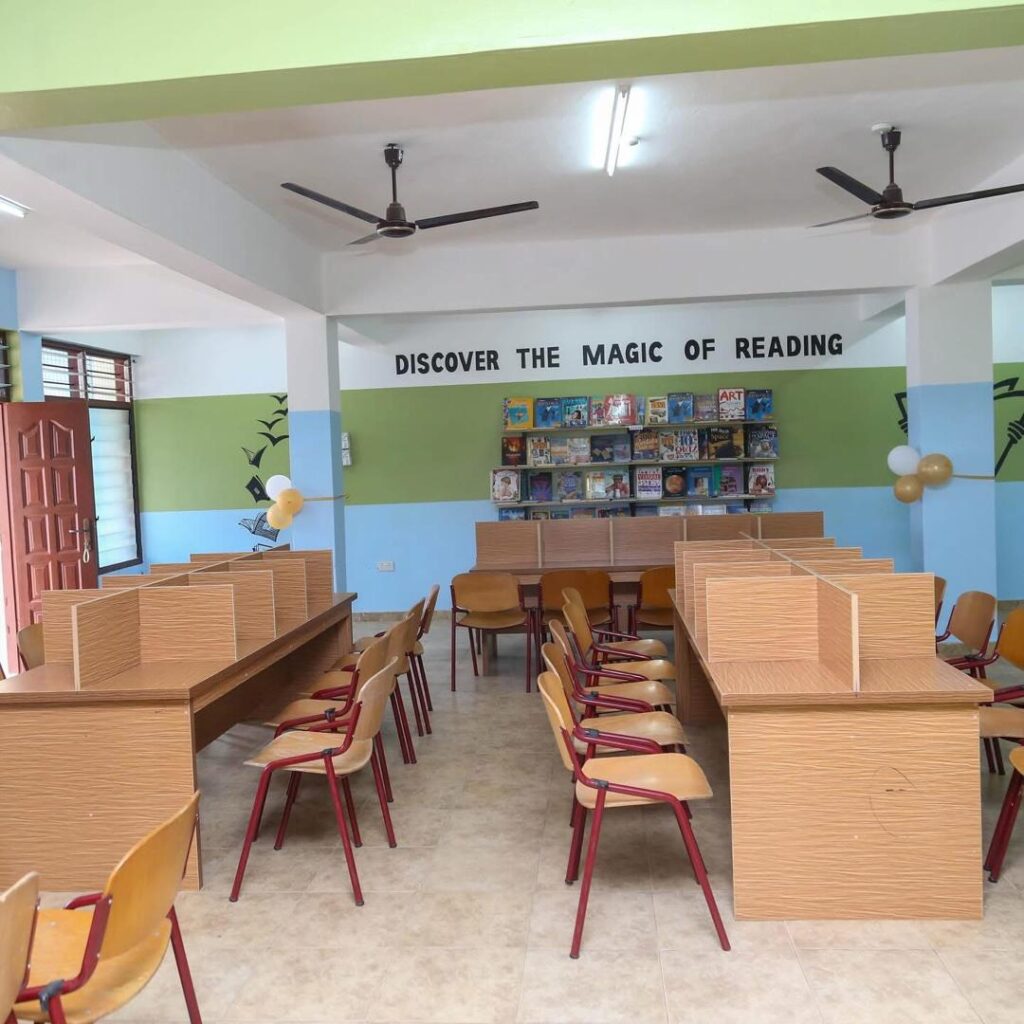
Inside the Aburi Cluster of Schools library
With just five years left to achieve the UN Sustainable Development Goals, donors, development partners, and sponsors must prioritize youth-led innovations like Spring-UP Global Network. This is how we leapfrog impact: by investing in solutions that empower communities and transform futures, one library at a time.
Support literacy equity. Empower communities. Invest in youth-led change. Support Spring-UP Global Network
